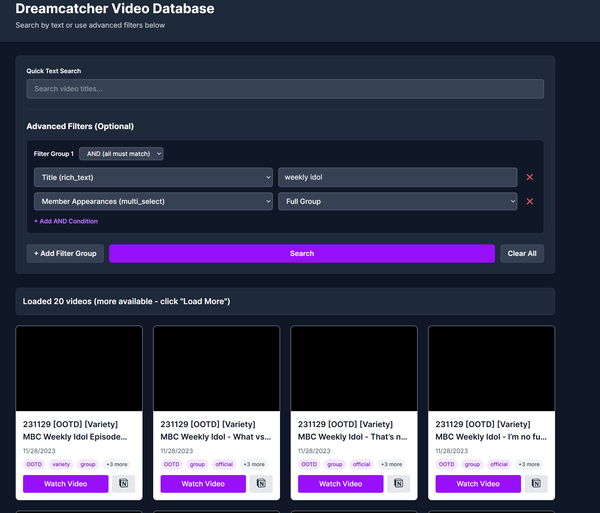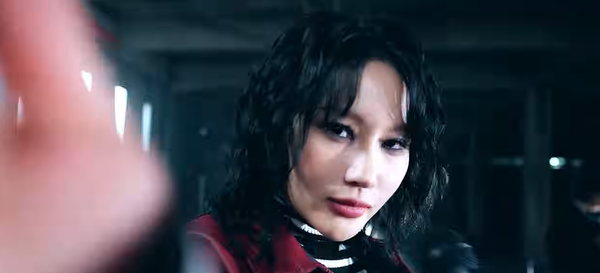Music Soothes The Savage NieR: Automata Beast
The best soundtracks can make even the most convoluted of games make sense.

Typically, I really like a good, complex story when it comes to games - even when it might be totally contrived or full of tropes like I explain in my recent article about the Trails series. But there are points at which I start to feel like it gets a bit too twisty-and-turny for its own good, or buried in a bunch of other lore and occurrences that make your head spin.
This is probably why I never, ever really spent more than a couple hours with Kingdom Hearts, one of the most well-regarded RPG games out there, or why in my anime days I appreciated but ultimately felt a little sideeye happening on my part when it came to “Neon Genesis Evangelion”, whose original ending made me scratch my head. I knew I good story was in there, I knew that lots of people enjoyed it and liked how it made them think - but I just felt my brain turn into a pretzel trying to understand it completely.
This is, for the most part, how I first felt about 2017’s “NieR: Automata”.
I won’t go into all the details, only to say that NieR’s universe is the result of an alternate universe with a very specific ending from another series of action role-playing games under the “Drakengard” banner. NieR Automata is the result of specifically one of NieR’s four endings, which leads into a novella with a specific outcome that leads into Automata’s timeline. And Automata itself has 26 endings of its own.
As such, you can kinda see where my head started to hurt, and that was before finding out there’s an entire Google spreadsheet dedicated to laying out the entirety of all of the Drakengard/NieR timelines and events. Ouch. Not a good sign when that’s a requirement to totally get the story (I think I gave up reading around the time Marco Polo got involved in the history).
So it was that “NieR: Automata” languished in my Steam library for a pretty long time. I’ve always been somewhat decent at clearing my Steam library backlog, but this game sat, kinda like a forgotten piece of fruit in the back of a refrigerator, ready to be consumed but never quite feeling up to doing it - until I came upon a random video in my YouTube recommendations.
If you’ve followed me because of my Dreamcatcher K-Pop content, it probably doesn’t surprise you that I have a weakness for symphonic metal and anything related to that. Besides being an unabashed Evanescence fan back in the day, Nightwish and Within Temptation provided a healthy exposure to headbanging, orchestral-style bangers. So when the platform threw at me a symphonic metal re-mix of “A Beautiful Song”, perhaps one of NieR: Automata’s best-known tracks, I was understandably intrigued. Here was a tune that was both parts energetic and haunting, intense yet vocally subtle. It didn’t take me long to find the original, and the boss fight in the game that matched it.
Despite being spoiled to perhaps one of the major fights in the game, none of that deterred me from ultimately deciding to pick the game up and give it another try. Here, independent of any convoluted story-telling that director Yoko Taro had come up to explain it, was a fight with a musical track that sang of loss, struggle, and oddly, hauntingly melancholy happiness expressed from Simone, the machine life form boss that you are forced to fight. Even though the game engages you in what is clearly an high-action sequence, composer Keiichi Okabe managed to put in that this wasn’t just a fight between two opposing forces, but one of survival on both sides. The video’s last moments, which show the tragedy of the character you had to slay, hooked me when its music built to that singular, sad moment.
I was hooked.
Not particularly caring for the backstory, I decided that if a composer like Okabe was directed by someone like Taro to create a single track for a boss fight early in the game with that kind of emotional weight, that I had to see what the rest of the game was like, and I wasn’t disappointed. Deciding to treat the game as its own self-contained entity without bothering to try to understand the context or history behind it, what I was treated to during my subsequent, repeated playthroughs as each protagonist was a world of apocalypse but continued determination, one of existential questioning and an ages-old conflict with sinister origins.
Through it all, I was treated to Okabe’s other work on Automata, with even a normal “overworld” theme for the Ruined City like “Rays of Light” conveying its own mood and significant identity. Okabe has said in interviews that he always made sure to communicate Taro’s vision for the world of NieR: Automata - a world of tragic fate and contrived destiny, but one in which its characters persevered to exist in. The layers of the truth behind the android YoRHa and their machine foes were peeled off, and what I didn’t quite understand due to the plot being a bit too wrapped around itself were instead better communicated through the music of the series.
By the time I’d gotten to the end of what was essentially the “canon” finale of the game, tracks like “Song of the Ancients” and “Weight of the World” had accompanied much of my somewhat ham-fisted action RPG’ing, and even though I looked clumsy rather than elegantly deadly at times, I didn’t feel any less fulfilled at the game’s ending, nor at not quite understanding everything that was going on with the plot. Instead, I felt a kind of thoughtful pensiveness, as I re-arranged a bunch of what impressions I had about the characters (both good and bad) into ideas that I hadn’t considered for real life. Today, as generative AI and machine-learning becomes more of a debated (if not controversial) topic, I can’t help but wonder if we might be considering some of the questions that Automata presented in 2017 in the very near future. One thing is for sure, though - real life may not quite have the appropriate mood music that Keiichi Okabe brought to NieR that might properly convey what’s being felt.
It still surprises me to this day to a certain extent that the power of a soundtrack alone made me enjoy a game I didn’t think I would at first. But then, considering that fact that in the K-Pop realm, where language barriers are common among global fans but music is no less seen as significant and enjoyable, maybe that shouldn’t be a surprise at all. For the music, and for how it carries the plot, it’s a game I highly recommend.




